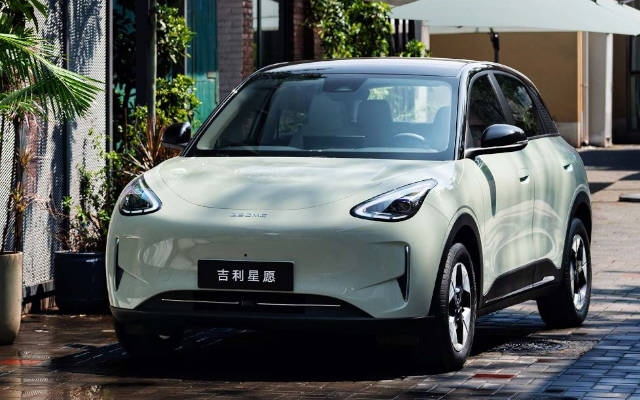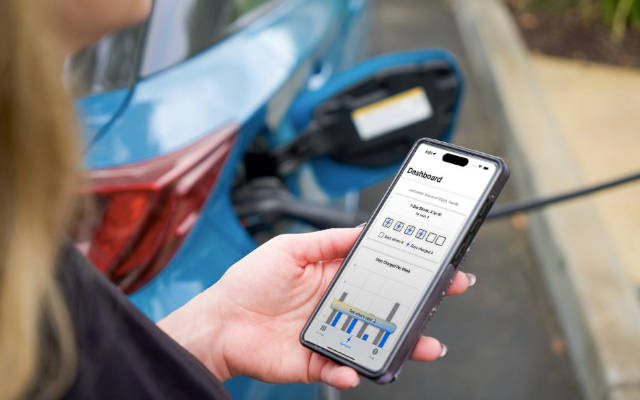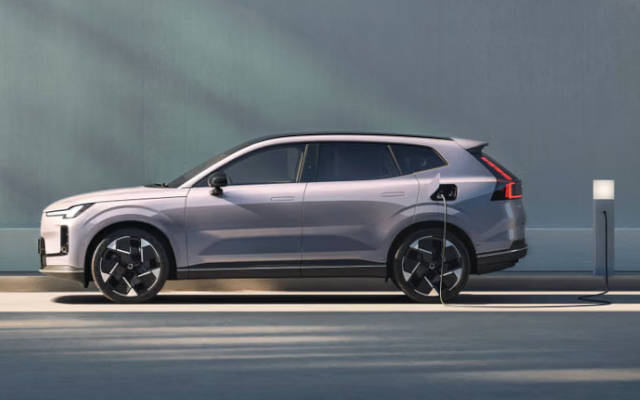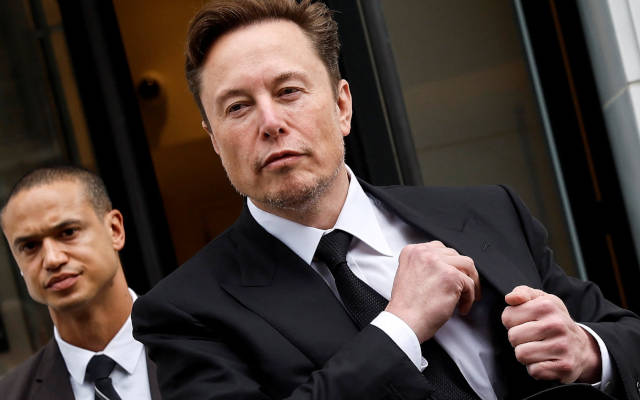 EDITOR'S PICK
EDITOR'S PICK
That $1-trillion Tesla Pay Package For Elon Musk Isn't As Bad As You Think. It's Worse
18 Sep 2025 | Synopsis
 Tesla's proposed $1 trillion pay package for Elon Musk ties rewards to extreme goals like an $8.5 trillion market cap and mass deployment of robotaxis and humanoid bots. Critics say it's not just excessive—it's structurally reckless, concentrating power without time-commitment safeguards and risking distorted priorities. The LATimes argues this isn't bold innovation, but a governance failure with long-term risks to shareholders and corporate accountability.
Tesla's proposed $1 trillion pay package for Elon Musk ties rewards to extreme goals like an $8.5 trillion market cap and mass deployment of robotaxis and humanoid bots. Critics say it's not just excessive—it's structurally reckless, concentrating power without time-commitment safeguards and risking distorted priorities. The LATimes argues this isn't bold innovation, but a governance failure with long-term risks to shareholders and corporate accountability.The EV You've Never Heard Of That Outsold Tesla
18 Sep 2025 | Synopsis
 Geely's Geome Xingyuan, a compact EV hatchback priced under $10,000, became China's top-selling car in H1 2025, outselling Tesla's Model Y and BYD's Seagull. Its name means "Prosperous origin," fitting for a vehicle reshaping mass-market electrification. With 204,940 units sold, the Xingyuan thrives on affordability, urban design, and domestic loyalty. Though unknown in the West, it signals China's growing influence in global EV strategy and the rise of scalable, low-cost platforms.
Geely's Geome Xingyuan, a compact EV hatchback priced under $10,000, became China's top-selling car in H1 2025, outselling Tesla's Model Y and BYD's Seagull. Its name means "Prosperous origin," fitting for a vehicle reshaping mass-market electrification. With 204,940 units sold, the Xingyuan thrives on affordability, urban design, and domestic loyalty. Though unknown in the West, it signals China's growing influence in global EV strategy and the rise of scalable, low-cost platforms.Toyota Built An App To Hack Plug-In Hybrid Owners' Brains And Make Them Actually Charge Their Cars
17 Sep 2025 | Synopsis
 Toyota developed the ChargeMinder app to encourage plug-in hybrid owners to charge their vehicles more consistently. Using behavioral science techniques like personalized reminders, gamification, and educational quizzes, the app increased user satisfaction and improved charging habits. In Japan, it boosted peak renewable charging by 59%, while U.S. trials saw a 10% rise in charging frequency and a 16-point jump in satisfaction.
Toyota developed the ChargeMinder app to encourage plug-in hybrid owners to charge their vehicles more consistently. Using behavioral science techniques like personalized reminders, gamification, and educational quizzes, the app increased user satisfaction and improved charging habits. In Japan, it boosted peak renewable charging by 59%, while U.S. trials saw a 10% rise in charging frequency and a 16-point jump in satisfaction.Volvo XC70 PHEV: A Battery-First Hybrid That Redefines the Segment
17 Sep 2025 | Synopsis
 Volvo's XC70 PHEV redefines plug-in hybrids with up to 200 km (124 mi) of EV range from a 39.6 kWh NMC battery, plus fast charging and bi-directional power. Its P1–P3 drivetrain pairs a 1.5L turbo engine with dual motors for seamless series-parallel operation. Built on Volvo's SMA platform, it launches first in China, with Europe expected next. The XC70 signals a battery-first strategy bridging hybrid autonomy and full electrification.
Volvo's XC70 PHEV redefines plug-in hybrids with up to 200 km (124 mi) of EV range from a 39.6 kWh NMC battery, plus fast charging and bi-directional power. Its P1–P3 drivetrain pairs a 1.5L turbo engine with dual motors for seamless series-parallel operation. Built on Volvo's SMA platform, it launches first in China, with Europe expected next. The XC70 signals a battery-first strategy bridging hybrid autonomy and full electrification.Where’d the Billion Come From? Musk's Tesla Buy Raises Questions
17 Sep 2025 | Synopsis
 Elon Musk's $1B Tesla stock purchase, made via his personal trust, sparked a surge in share price and raised questions about how the buy was funded. Likely financed through margin loans, derivatives, or asset reallocation, the move increased Musk's net worth by up to $8.6B. The timing aligns with Tesla's proposed $1T compensation plan, suggesting a strategic gesture to boost investor confidence and governance optics.
Elon Musk's $1B Tesla stock purchase, made via his personal trust, sparked a surge in share price and raised questions about how the buy was funded. Likely financed through margin loans, derivatives, or asset reallocation, the move increased Musk's net worth by up to $8.6B. The timing aligns with Tesla's proposed $1T compensation plan, suggesting a strategic gesture to boost investor confidence and governance optics.
 Si Exclusive
Si Exclusive
Hydrogen's Flight Path: Fuel Cells, Turbines, and the Economics of Clean Aviation
10 Oct 2025 |  Aviation is shifting from Jet A to four fuel systems: electricity, hydrogen (fuel cell and combustion), SAF, and petroleum. Fuel cells suit short-haul aircraft; hydrogen combustion may power long-range jets. SAF bridges legacy fleets. Hydrogen costs - $5-$7/kg today, possibly $2/kg by 2040 - impact ticket prices and infrastructure decisions. Airport authorities, airlines, and governments will share deployment costs. Each fuel has distinct environmental pros and cons shaping aviation's net-zero future.
Aviation is shifting from Jet A to four fuel systems: electricity, hydrogen (fuel cell and combustion), SAF, and petroleum. Fuel cells suit short-haul aircraft; hydrogen combustion may power long-range jets. SAF bridges legacy fleets. Hydrogen costs - $5-$7/kg today, possibly $2/kg by 2040 - impact ticket prices and infrastructure decisions. Airport authorities, airlines, and governments will share deployment costs. Each fuel has distinct environmental pros and cons shaping aviation's net-zero future.
 11 Oct 2025 00:24:11 UTC |
RECENT PODCASTS
BYD Soars - Cheaper Tesla Models - The Bolt is Back - Rivian
SEARCH RSSTREAM
 53 New Postings In Past 24 Hours
53 New Postings In Past 24 Hours
Category:finance
Region:NoAmerica
Date:10 Oct 2025
Category:policy
Region:NoAmerica
Date:10 Oct 2025
Category:mobility
Region:AsiaPacific
Date:10 Oct 2025
Category:mobility
Region:AsiaPacific
Date:10 Oct 2025
Category:finance
Region:NoAmerica
Date:10 Oct 2025
Category:finance
Region:IndoAsia
Date:10 Oct 2025
Category:energy
Region:Global
Date:10 Oct 2025
Category:energy
Region:NoAmerica
Date:10 Oct 2025
Category:finance
Region:NoAmerica
Date:10 Oct 2025
Category:finance
Region:Global
Date:10 Oct 2025